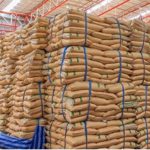Tobacco
Tobacco
Introduction to Tobacco
Tobacco has a long and complex history, spanning thousands of years and deeply impacting societies around the world. This guide will explore the origins and spread of tobacco, its role in colonization, its rise as a cash crop, its influence on society and culture, the health implications of tobacco use, the development of anti-smoking campaigns and regulation, and modern trends and alternatives to tobacco usage.
Ancient Origins of Tobacco
The story of tobacco begins in ancient times, as early as 5000 BC, in the Americas. Indigenous cultures throughout the region discovered and cultivated a variety of tobacco species, recognizing the potential uses of the plant. They used tobacco for both medicinal and ceremonial purposes, often smoking it in pipes or rolling it into cigars. Over time, knowledge about tobacco cultivation and its uses spread from tribe to tribe, shaping the ancient origins of this influential plant.
Exploration and Spread of Tobacco
As European explorers ventured into the Americas in the 15th and 16th centuries, they encountered tobacco for the first time. Fascinated by its unique properties, they brought tobacco back to Europe, where it quickly gained popularity among the upper classes. The transatlantic trade played a significant role in the global spread of tobacco, as it became an important commodity that fueled economic growth and international commerce.
Tobacco’s Role in Colonization
Tobacco played a crucial role in the colonization of the Americas. European powers, such as Spain, Portugal, and England, established tobacco plantations as profitable enterprises and relied on enslaved African labor to meet the growing demand. The expansion of tobacco cultivation led to the rapid transformation of vast landscapes, displacement of indigenous populations, and profound societal changes.
Rise of Tobacco as a Cash Crop
By the 17th century, tobacco had become one of the most valuable cash crops in many regions of the Americas. Its economic significance fueled the growth of colonial economies and shaped global trade networks. The tobacco industry shaped the development of modern agricultural practices, as planters sought to increase production and quality to meet rising demands.
Tobacco’s Influence on Society and Culture
Tobacco has left an indelible mark on societies and cultures around the world. It became a symbol of status and wealth, influencing fashion, art, and social interactions. Smoking tobacco became ingrained in various rituals and customs, representing masculinity, relaxation, and leisure. However, tobacco also faced opposition due to its addictive nature and harmful effects on health.
Health Implications of Tobacco Use
Scientific research has increasingly revealed the negative health implications of tobacco use. Smoking tobacco is proven to be a major cause of preventable diseases, including various types of cancer, heart disease, and respiratory disorders. Secondhand smoke poses risks to non-smokers as well. Efforts to raise awareness about the health hazards of tobacco have led to significant changes in public perception and policy.
Anti-Smoking Campaigns and Regulation
In response to the growing evidence of tobacco’s detrimental effects, anti-smoking campaigns and regulations have emerged worldwide. Governments and advocacy groups have implemented measures such as warning labels, advertising restrictions, and higher taxes on tobacco products to discourage smoking and protect public health. These efforts have had varying levels of success in reducing tobacco consumption.
Modern Trends and Alternatives to Tobacco Usage
As awareness of the health risks associated with tobacco grows, society has witnessed the emergence of modern trends and alternatives to traditional smoking. Electronic cigarettes, or e-cigarettes, have gained popularity as a substitute for combustible tobacco products. However, debates surrounding their long-term effects and regulations continue. Additionally, alternative plant-based products, such as herbal cigarettes, have entered the market as non-nicotine options.
Overall, the history and impact of tobacco are complex and multifaceted. From ancient origins to modern debates, tobacco has played a significant role in shaping societies, economies, and public health. Understanding its past and present is crucial in addressing the challenges and opportunities associated with tobacco usage in the future.
SHIPPING DOCUMENTS
Bill of Lading
Certificate of Origin
SGS Inspection Certificate
Phytosanitary Certificate
Fumigation Certificate
Commercial Invoice
Packing List


TRADE PROCESS
Cost Insurance and Freight (CIF):The seller handles everything from loading the vessel, paying for insurance, and shipping the product to the country the buyer wants it delivered.
Freight On Board (FOB):The seller is responsible for handling the transportation of the goods to the port of shipment and loading cost. Once the goods are loaded on the ship, all liabilities transferred to the buyer. Liabilities like unloading, insurance, marine freight transport and transporting products to its destination.
We Are Ready To Handle Your Request
Enter your details and we will get in touch to discuss your project






